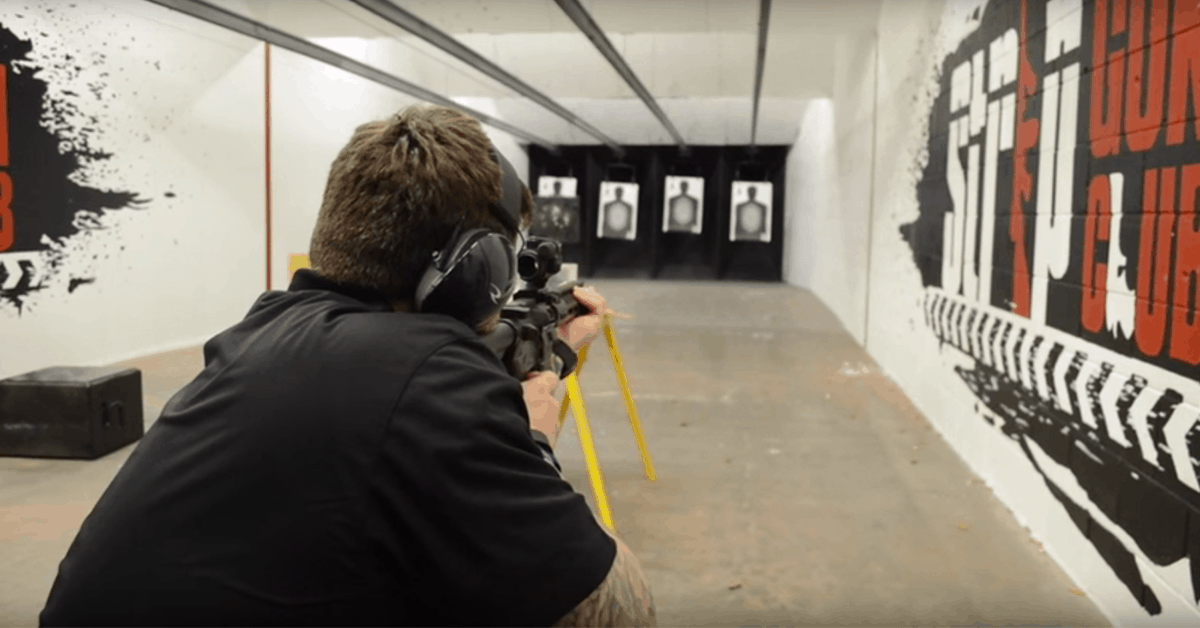Joel Lambert spent ten years as a Navy SEAL and is now the star of the Discovery Channel’s “Lone Target” (called “Manhunt” outside the U.S.)
“In China, it’s called ‘Capture the Special Master,’ and that’s awesome,” Lambert says.
“Lone Target” pits Lambert and his survival and evasion skills against some of the world’s best trackers, from Maori warriors in New Zealand to the U.S. Army’s Phantom Recon unit in the Arizona deserts. He is inserted into the “Hunter Force Unit’s” area of control and must reach a designated extraction point within a certain amount of time.

“SERE [survival, evasion, resistance, escape] was something I enjoyed as a SEAL,” Lambert says. “The field craft, SERE, heavy weapons and explosives were the kind of things I gravitated towards and did a lot of training in.”
Before he trained with the Navy, Lambert actually did some acting.
“I had a background in commercials,” Lambert says. “I never thought this would ever be part of my life again. A friend of mine said he was putting a show together, looking for special operations guys with tracking and survival background. I went out there and saw they had guys from [the British] Special Air Service, Recon Marines, all these guys with specific skills sets. I thought, okay maybe this is more than just a guy trying to cobble together a pilot.”
He was right. “Lone Target” is a hit for the Discovery Channel. And what Lambert did next would change his life.
“I ran into the desert, built some booby traps, talked about tracking and tactics, the psychology of being hunted or hunting,” he says. “They offered me the gig and I thought, ‘I don’t want to do this.’ My ego is at stake. I’m going to be wearing that trident on my chest whether I talk about it or not. I’m going to be representing all my brothers. It was a huge risk.”

“Those are exactly the reasons why I had to do it,” he laughs. “It was the most amazing experience.”
Lambert was caught three time out of six in the first season and only once the second.
“It’s a very hard thing, especially doing it in daytime so we can film and I have a camera guy with me,” he says. “All the things that are necessary to making the show handicap me, not the hunter force. At first I thought it was just unfair, but the more I thought about it, I was like, ‘You know what? It makes it even better because when I do get away because then I’ve really pulled some shit off.'”
A show with insurmountable odds each week is the perfect fit for a guy who joined the military just to be a SEAL. When he was ten years old his father introduced him to a friend who had just finished BUDS, and the young lad was taken with the stories about how challenging it was both physically and mentally. That feeling stuck with him until he focused on getting in peak shape at age 22.

“I moved into this crackerbox studio apartment and started doing nothing but training because I wasn’t sure I had it in me physically,” Lambert says. “I woke up five in the morning, out there running five miles in boots, doing hundreds of push ups. I think it was a little over a year that I really dedicated everything in my life to training for BUDS.”

But not everyone can be the subject of their own Discovery Channel show, so Lambert has a little advice for those whose military specialty doesn’t exactly have a civilian counterpart.

“I see these guys like Team Rubicon, they’re moving from swinging the sword to building the city,” he says. “Ryan Zinke, Montana Congressman, he’s moving from kicking in doors to leading and serving. Just because you’re not toting a weapon anymore doesn’t mean your path has ended. It’s there, you just keep moving forward.”


























